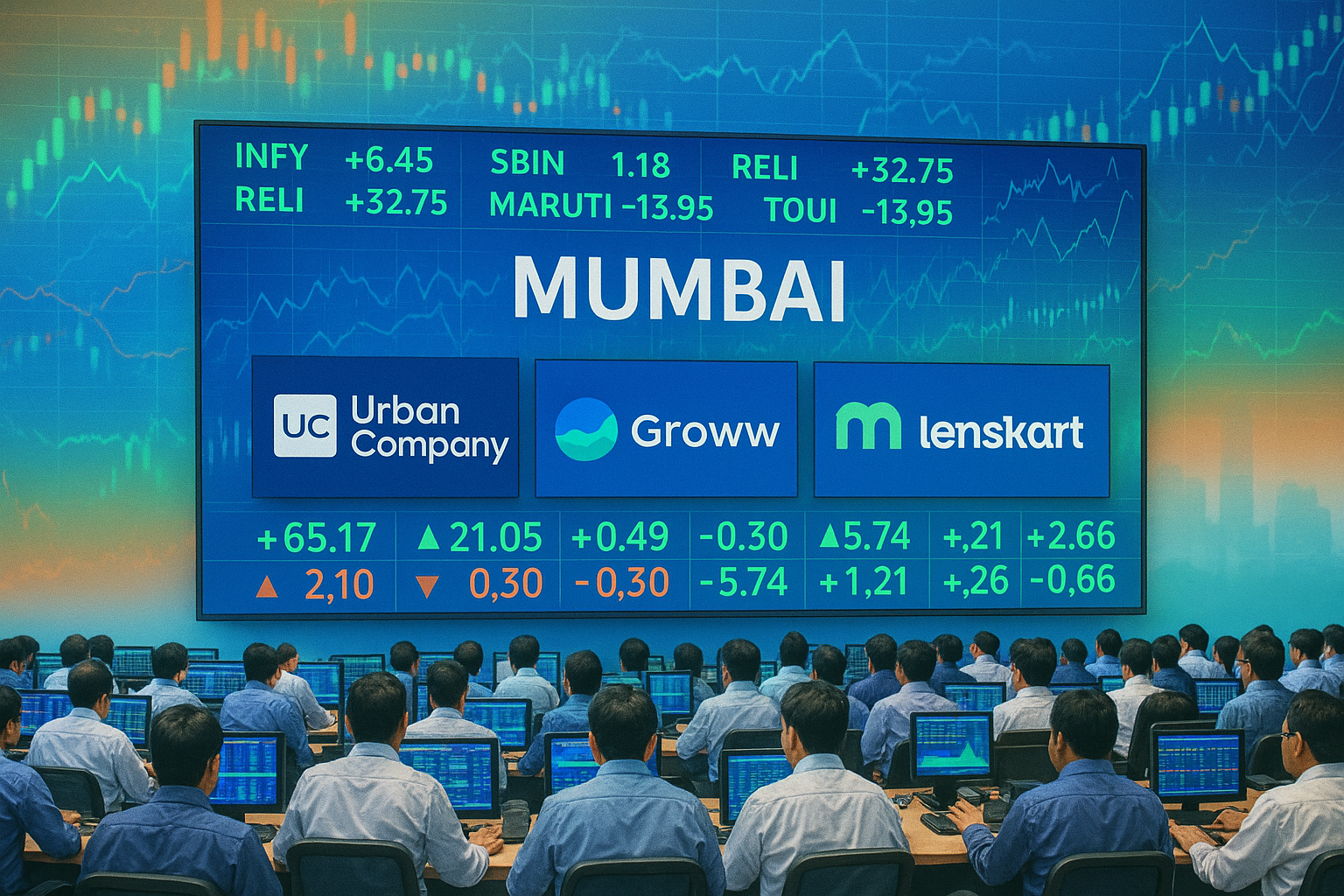As India’s startup ecosystem matures, a wave of companies is preparing to enter the public markets, with profitability emerging as a critical prerequisite for successful Initial Public Offerings (IPOs). The tech downturn post-pandemic shifted investor sentiment from growth-at-all-costs to sustainable financials, compelling startups to streamline operations and reduce losses. Leading the charge, Urban Company reported its first full year of profitability in FY25, while others like Groww, Oyo, Meesho, and Lenskart have made significant strides toward financial discipline. This article explores the evolving landscape of India’s IPO-bound startups, their financial strategies, and the broader implications for the startup ecosystem as they aim for Dalal Street.
Financial Turnaround and IPO Preparations
The Indian startup scene is buzzing with IPO fever, driven by a robust market and heightened investor expectations. Urban Company, a home services platform, achieved a consolidated profit of ₹240 crore in FY25, bolstered by a ₹211-crore deferred tax credit but profitable even on a pre-tax basis, according to its annual report. This milestone positions Urban Company alongside fintech giant Groww, which reported a profit after tax (PAT) of ₹1,819 crore in FY25, a dramatic turnaround from a ₹799-crore loss in FY24, with operating revenue up 30% to ₹3,844 crore.
Oyo, a hospitality unicorn, is making its third attempt at an IPO and has achieved profitability, signaling a recovery from past challenges. Meesho, an e-commerce platform, slashed its consolidated losses to ₹304 crore in FY24 from ₹1,675 crore in FY23, and excluding ESOP costs, its losses were a mere ₹53 crore, with profitability achieved in Q2 FY24. Lenskart, an eyewear retailer, reduced its consolidated losses to ₹10 crore in FY24 from ₹64 crore in FY23, with a 43% year-on-year revenue growth to ₹5,427 crore and a standalone profit of ₹144 crore. Shiprocket, a logistics startup, has projected profitability for FY25, while others like PhysicsWallah face challenges, with losses ballooning in FY24.
The shift toward profitability is driven by public market scrutiny. “Revenue metrics are no longer the sole benchmarks for IPO valuations. Investors, including anchor investors, prioritize profitability or at least EBITDA-level breakeven,” said Mehekka Oberoi, fund manager at IIFL Fintech Fund. Gopal Jain, managing partner at Gaja Capital, added, “Public markets demand simple metrics like profitability. As sectors mature, the bar for subsequent IPOs rises, leaving less room for vanity metrics”.
Market Dynamics and Investor Sentiment
The IPO frenzy of 2024, with 23 startups in various stages of preparation, has cooled in 2025 due to volatile markets. Companies like Zepto, Infra.Market, and Pine Labs have recalibrated their plans, with some opting for pre-IPO private funding rounds. Keyur Majumdar, managing partner at Bay Capital, noted, “The IPO window is narrower now, and investor appetite is tepid, leading to potential deferments”. However, firms like Meesho, which transitioned to a public limited company in June 2025 and plans to file its Draft Red Herring Prospectus (DRHP) by July for a $700-800 million IPO, are pressing forward. Groww, having shifted its domicile back to India in March 2024, aims to file its DRHP by April-May 2025 for a $1 billion IPO, targeting a $7-8 billion valuation.
The financial discipline required for IPOs is reshaping startup strategies. Lenskart, for instance, is investing $200 million in a Telangana manufacturing facility and plans to add 400 stores to its 2,500-strong network, supported by a 112.5% EBITDA increase to ₹856 crore in FY24. Nishit Garg, partner at RTP Global, emphasized, “Markets value consistency, discipline, and predictability over aggressive short-term growth”.
Industry Leader Perspectives
Industry leaders have underscored the importance of financial prudence. Anupam Mittal, founder of Shaadi.com, commented, “The public market is unforgiving. Startups like Urban Company and Groww are setting the tone by showing that profitability is achievable without sacrificing growth.” Vidit Aatrey, CEO of Meesho, stated, “Our focus on operational efficiency and customer retention has driven us closer to profitability, making us IPO-ready.” Peyush Bansal, founder of Lenskart, added, “Our investments in technology and local manufacturing are not just for growth but for sustainable margins, critical for public investors.”
However, some caution against over-optimism. Aalok Shah, managing director at Rothschild & Co., noted, “Flexible IPO timelines are pushing startups toward pre-IPO funding, which could delay listings but strengthen balance sheets”. An anonymous venture capitalist remarked, “Profitability is a must, but startups must also demonstrate scalable business models to justify high valuations.”
Social Media Reactions from Industry Leaders
Posts on X reflect the sentiment around this trend:
@StartupIndiaNow: “Urban Company’s FY25 profitability is a game-changer for IPO-bound startups. Shows the market rewards discipline! #IPO #DalalStreet”
@FintechGuru: “Groww’s ₹1,819 Cr profit in FY25 is a signal: fintechs must prioritize margins for Dalal Street. #Fintech #IPO”
@VentureVoiceIN: “Meesho and Lenskart slashing losses is the new normal. Public markets want profits, not promises. #StartupIndia #IPO”
Challenges and Future Outlook
Despite progress, challenges remain. Startups like PhysicsWallah, which saw increased losses in FY24, highlight the difficulty of balancing growth and profitability. Volatile markets and stricter SEBI regulations are raising the bar, with companies needing to demonstrate consistent cash flows and governance standards. The 2024 IPO boom, which saw successes like FirstCry and Awfis, has set high expectations, with FirstCry reporting a 31% loss reduction to ₹75.68 crore in Q1 FY25 and Awfis posting a ₹2.7 crore profit.
Looking ahead, the Indian startup ecosystem is poised for a transformative phase. With 23 startups preparing for IPOs in 2025, the focus on profitability will drive operational efficiencies and innovation. The success of companies like Urban Company, Groww, and Meesho could inspire others, but the path to Dalal Street requires navigating market volatility and investor scrutiny.
Conclusion
India’s startups are at a pivotal juncture, with profitability becoming the cornerstone of their IPO aspirations. Urban Company’s FY25 profit, Groww’s financial turnaround, and Meesho and Lenskart’s loss reductions reflect a broader shift toward fiscal discipline. As these companies prepare to face Dalal Street’s rigorous standards, their focus on sustainable growth and profitability will shape the future of India’s startup ecosystem, signaling its maturity on the global stage.












